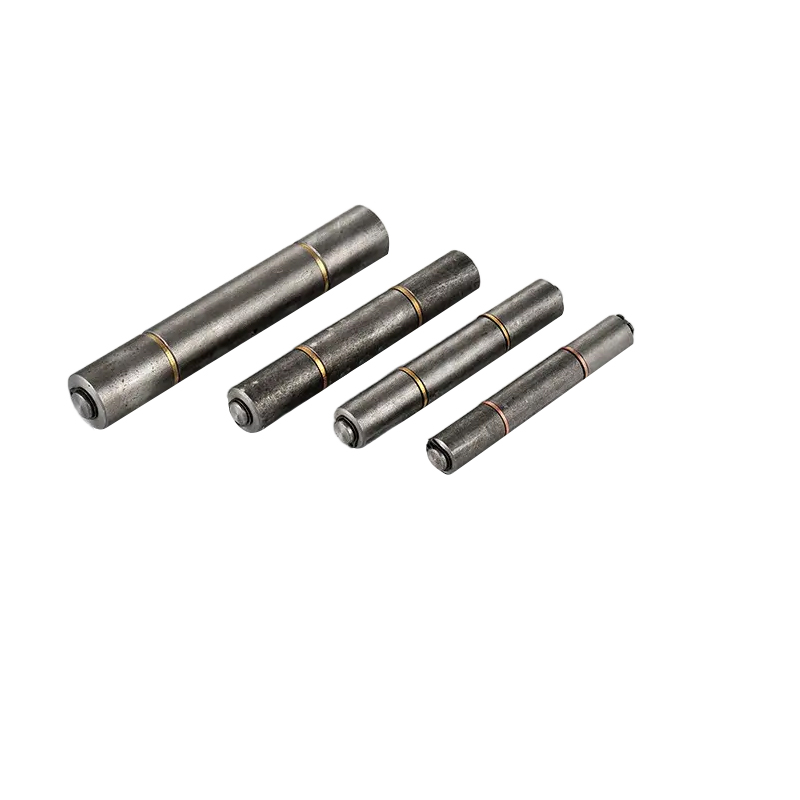No. 200 Gaoxin RD, Shanghua St, Lanxi, Zhejiang, P. R China
The CNC (Computer Numerical Control) machine tools are widely used in ...
See Details
Heavy-duty hinges are essential components for ensuring the smooth operation and durability of gates, especially in high-traffic or industrial environments. Proper maintenance of heavy duty hinges on gates is crucial for extending their lifespan, preventing unnecessary wear, and ensuring safe, reliable operation.
1. Regular Inspection
The step in maintaining heavy duty hinges on gates is conducting regular inspections. Over time, wear and tear from constant movement and exposure to the elements can affect the hinge’s performance. It’s essential to check for any signs of damage such as cracks, rust, or deformation. A visual inspection can help identify issues early, allowing for timely repairs or replacements before the hinge fails completely.
Inspecting the gate’s alignment is also important, as misalignment can cause uneven pressure on the hinges, causing premature wear or malfunction. Regular checks will help ensure that heavy duty hinges on gates continue to operate smoothly and effectively.
2. Lubrication
The simple and effective way to maintain heavy duty hinges on gates is through regular lubrication. Proper lubrication reduces friction, preventing wear and tear on the hinge components. Without lubrication, the hinges can become stiff, noisy, and prone to damage due to metal-on-metal contact. Using a high-quality lubricant designed for heavy-duty applications will help keep the hinges operating quietly and efficiently.
It is advisable to apply lubricant to both the pin and the hinge arms, ensuring that the entire hinge assembly moves freely. Depending on the environment, lubrication should be done every few months or more frequently if the gate is exposed to unique weather conditions.
3. Cleaning the Hinges
Dirt, debris, and moisture can accumulate on heavy duty hinges on gates, causing them to rust or corrode over time. Regular cleaning is necessary to remove these contaminants. Use a soft brush, cloth, or compressed air to clean the hinge area thoroughly. For gates exposed to heavy dirt or mud, more frequent cleaning may be required.
If you notice any signs of rust, it’s important to clean the affected areas and treat them with rust remover or a protective coating. This will prevent further corrosion and maintain the hinge's performance.
4. Checking for Loose Fasteners
Over time, the fasteners (bolts, nuts, and screws) that secure heavy duty hinges on gates may loosen due to the constant movement of the gate. Loose fasteners can cause the gate to become unstable, causing misalignment or even damage to the hinges. During regular maintenance checks, it’s important to tighten any loose fasteners to maintain the structural integrity of the hinge system.
For long-term stability, consider using locknuts or thread-locking adhesive to prevent the fasteners from loosening over time.
5. Protecting Against Environmental Elements
Heavy-duty hinges are often exposed to the elements, including rain, snow, and UV rays, all of which can accelerate wear and corrosion. To prevent environmental damage, consider applying a protective coating to heavy duty hinges on gates. Galvanization, powder coating, or weather-resistant paints can help protect the hinges from rust and corrosion.
For gates located in harsh environments, like coastal areas where saltwater exposure is common, using stainless steel or corrosion-resistant materials for the hinges may also be a good investment.
Maintaining heavy duty hinges on gates is essential to ensure smooth operation and extend the life of the gate. Regular inspection, lubrication, cleaning, checking fasteners, and protecting against environmental elements are key steps in keeping the hinges functioning properly. By implementing these maintenance practices, you can prevent unnecessary repairs and enjoy the long-lasting benefits of well-maintained heavy duty hinges on gates.